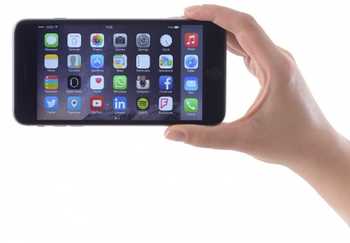More than a dozen U.S. based tech firms filed legal briefs in support of Apple’s case against the U.S. Government over device security. Apple has been resisting demands from the Federal Bureau of Investigation to unlock the iPhone of San Bernardino shooter Syed Farook.
The amicus brief received by U.S. District Judge Sheri Pym in Riverside, California, argued that the 1789 All Writs Act cannot be used to force companies to create new technology. Additionally, the tech companies argue that Congress passed laws that govern what companies are compelled to do in support of government investigation, and the FBI orders are an “end run” around those laws.
Families of the victims of the December 2015 terrorist attack filed their own amicus brief opposing the case made by the companies.
The tech community that is expressing support for Apple’s stance against the US Government includes some of the biggest corporate rivals. While at first there was some hesitancy to become involved – or perhaps a desire to view the initial trajectory of the confrontation - Facebook, Google, Microsoft, Ebay, Twitter, Airbnb, & Reddit are among the group that has now become proactive.
In the amicus briefs filed, the language is crystal clear and harshly criticizes the intent and actions of the FBI. These giant corporations are no longer concerned about any negative public perception. On the contrary, their alignment together will create a positive solidarity in the tech industry, and one which is likely to capture the attention of the public with a strong display of a line in the sand against government action that compromises confidentiality and privacy of the end user.
The perceived limitations of the All Writs Act of 1789
This current issue is bringing to the forefront the All Writs Act which is timestamped in 1789 – a year that is almost a century before the telephone was invented. Technology today is at a point that would be considered pure science fiction at the time that law was created.
The tech companies’ argument is that the All Writs Act is no longer appropriate to use as the fundamental legal basis for the FBI demand against Apple. Cellular phones have become the epicenter of many people’s day. Individuals of all ages store information about every aspect of life on their device. From medical details, personal communication, images, and family secrets to bank account numbers, tax related items, and personal whereabouts – everything is there within the smart phone. Cracking into a it would most likely display a comprehensive picture of that person, and expose very private and perhaps embarrassing details that were intended to remain totally private.

Assisting the FBI to open the data on an alleged terrorist’s iPhone may seem like the right and simple thing to do. However, the process to assist in that task is not a simple one. And tech giants state definitively that it is not right. It would require the Apple engineers to create software that does not currently exist. In other words, the key to this lock has never been constructed - and no one knows what it would look like. Once the master key is created, however, the highest level of Apple cell phone security would be exposed and forever compromised. There would be no way to bury the key in the ground again.
A precedent that tech giants do not want to be set
Additionally, the tech companies are concerned that a bad precedent would be set and open the door to an endless barrage of similar requests that would endanger the confidentiality of their highest level security features, and the methodology and secrets of their unique operation systems. How can this same type of FBI request not be anticipated in the future again, related to other important crime cases?
It also sets in motion the possibility that other nations can also demand assistance from tech companies in order to access secure devices for a variety of reasons. The tense conversation arising from this issue is interwoven in a world that is driven by technology, and a population that is now extremely dependent upon it. To disturb the confidence in the security of the prime devices in use would be to disrupt one of the foundational elements of modern day life.
Apple is demanding that this debate be settled by Congress instead of by the courts. Lawyers for the company have recently argued this point before the House Homeland Security Committee one day after FBI Director James Comey also testified there.
The Writs Act uses the term “nonburdensome technical assistance” as the framework for requesting companies to collaborate with them. One of the points of the Apple push back is that the nature of the access security work-around to retrieve data off their iPhone is far beyond what the tech community considers to be within the translation of that terminology.





